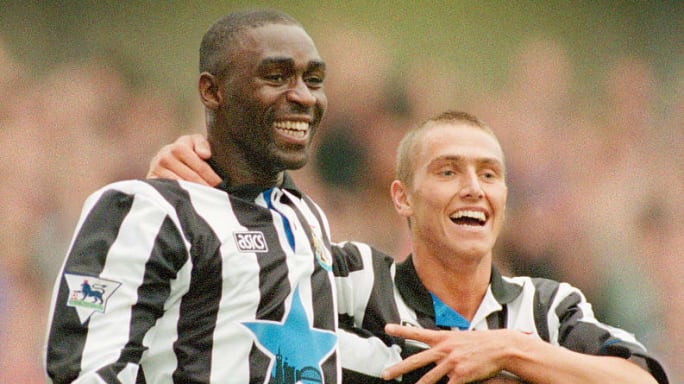
A debut Premier League season is often about survival and nothing more. Play the kids in the cups, get to 40 points, take the odd scalp along the way and dream about doing it all over again next year.
But some newly promoted sides don't just settle for an eternity of treading water, with Wolves being the most recent example in 2018/19. Nuno Santo's side finished seventh - the sixth highest league placing from a newly promoted side in Premier League history, and the best since 2001.
Despite a slow start to the season due to their heavy league and European schedule, Wolves have enjoyed another stellar top flight campaign, swiftly diminishing any fears of the dreaded second season syndrome.
Sheffield United have boldly followed in Wolves' footsteps this time around, sitting just two points off fifth place in seventh.
So just how real is second season syndrome - the notion that newly promoted teams perform worse during year number two in the Premier League? Just how well have Wolves done this year, and who can Sheffield United hope to emulate next season?
Let's take a look at the most successful newly promoted sides in Premier League history, and how they fared the following season.
Charlton Athletic 2000-02
Promoted: 1999/2000 - 1st (91 points)
First Premier League Season: 9th (52 points)
Second Premier League Season: 14th (44 points)
Charlton bounced back to the top flight at the first time of asking under Alan Curbishly and enjoyed a strong first season back in the promised land with a ninth place finish - which would have been even higher had they not boasted the sixth shakiest defence in the league.
They started season number two just as confidently and were in with a real shout for European football, but endured a torrid end to the campaign as they failed to win any of their last 10 league fixtures.
They still finished a comfortable eight points clear of the drop zone and were never really threatened by relegation - at least until much later in the 2006/07 season, when they did go down.
Second Season Syndrome? Slightly, but not drastically
Reading 2006-08
Promoted: 2005/06 - 1st (106 points)
First Premier League Season: 8th (55 points)
Second Premier League Season: 18th (36 points)
After a record-breaking promotion points haul, Reading hit the ground running in their maiden top flight season. Kevin Doyle hit 13 goals and was nominated for PFA Young Player of the Season, and they missed out on European football by just one point.
However, the Royals lost talisman Steve Sidwell to Chelsea at the end of the season and were ultimately relegated on the final day of the season after Roy Hodgson masterminded Fulham's great escape.
Reading's dismal run between January and February - where they lost a club record eight on the trot - proved costly.
Second Season Syndrome? Oh yes.
Sunderland 1999-2001
Promoted: 1998/99 - 1st (105 points)
First Premier League Season: 7th (58 points)
Second Premier League Season: 7th (57 points)
Sunderland were also record breakers when they returned to the Premier League as Division One champions in 1999, and Kevin Phillips famously fired them seventh place in the top flight with his European Golden Shoe winning goal return - 30 goals in his debut top flight season.
The Black Cats enjoyed a similarly strong season the following year, and were in the mix for UEFA Cup qualification - occupying a top four spot well into February.
They ultimately missed out on European football by four points.
Second Season Syndrome? Not a chance. Third and fourth season, however...
Ipswich Town 2000-02
Promoted: 1999/2000 - 3rd (87 points)
First Premier League Season: 5th (66 points)
Second Premier League Season: 18th (36 points)
After being promoted via the playoffs, Ipswich were fancied to make a swift return to Division One. Instead, Marcus Stewart hit 19 goals to catapult the Tractor Boys into the Uefa Cup - had results gone their way on the final day of the season, George Burley's side could have finished as high as second.
However, after really going for it in the Uefa Cup and not making the shrewdest of purchases in the transfer market, the following season they picked up just one league win before 22 December.
A dismal run of one win from 13 at the back end of the campaign confirmed Ipswich's relegation - although they did qualify for Europe again through the Uefa Fair Play Ranking. Every cloud.
Second Season Syndrome? Big time.
Blackburn Rovers 1992-94
Promoted: 1991/92 - 6th (74 points)
First Premier League Season: 4th (71 points)
Second Premier League Season: 2nd (84 points)
After being promoted via the playoffs following the appointment of Kenny Dalgish midway through the season, Blackburn splashed the cash thanks to the backing of local millionaire Jack Warner, and immediately reaped the benefits.
They broke the British transfer record to bring in Alan Shearer, who finished as their top scorer despite suffering an ACL injury in December.
Blackburn were denied a spot in the UEFA Cup by a single point, and the following season a fully fit Shearer fired them to second spot in the Premier League, missing out on the title by six points. They were famously crowned champions the season after.
In 1999 they were, however, brought back to Earth with relegation.
Second Season Syndrome? Not with Shearer about.
Nottingham Forest 1994-96
Promoted: 1993/94 - 2nd (83 points)
First Premier League Season: 3rd (77 points)
Second Premier League Season: 9th (58 points)
Forest recorded the joint highest finish for a newly promoted side in 1994/95, and mounted a serious title challenge for most of the season, only to fall away as the campaign reach its climax.
They still qualified for Europe, with striker Stan Collymore influential, hitting 22 goals. When Collymore was sold to Liverpool in the summer, many feared the club would really struggle.
Unsurprisingly, Forest failed to hit the same heights without Collymore, but still enjoyed a respectable league campaign and reached the quarter finals of the Uefa Cup.
Second Season Syndrome: Kind of - but not to disastrous consequences - and understandable given the loss of Collymore
Newcastle United 1993-96
Promoted: 1992/93 - 1st (96 points)
First Premier League Season: 3rd (77 points)
Second Premier League Season: 6th (72 points)
Kevin Keegan's 'entertainers' are level with Blackburn for a best Premier League finish for a newly promoted side, thanks largely to a combined 55 league goals from strikers Andy Cole and Peter Beardsley.
This was enough to secure European football for the first time since the 70s, and the Magpies looked on course to repeat that feat the following season.
However, in January Cole was sold to Manchester United, their form suffered, and Newcastle ultimately missed on on the final UEFA Cup spot by a point.
In the following seasons, though things were only going to get better (but also more heartbreaking) for the Toon.
Second Season Syndrome? Only ever so slightly.
Source : 90min

